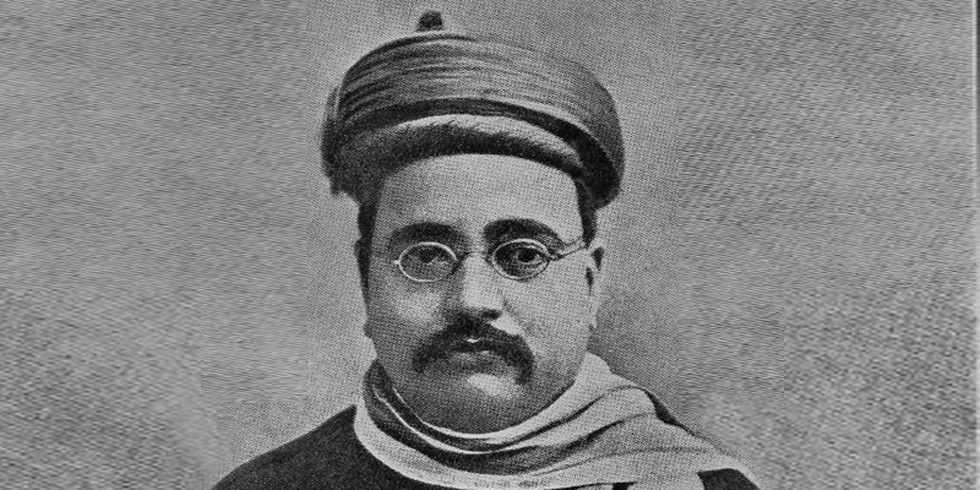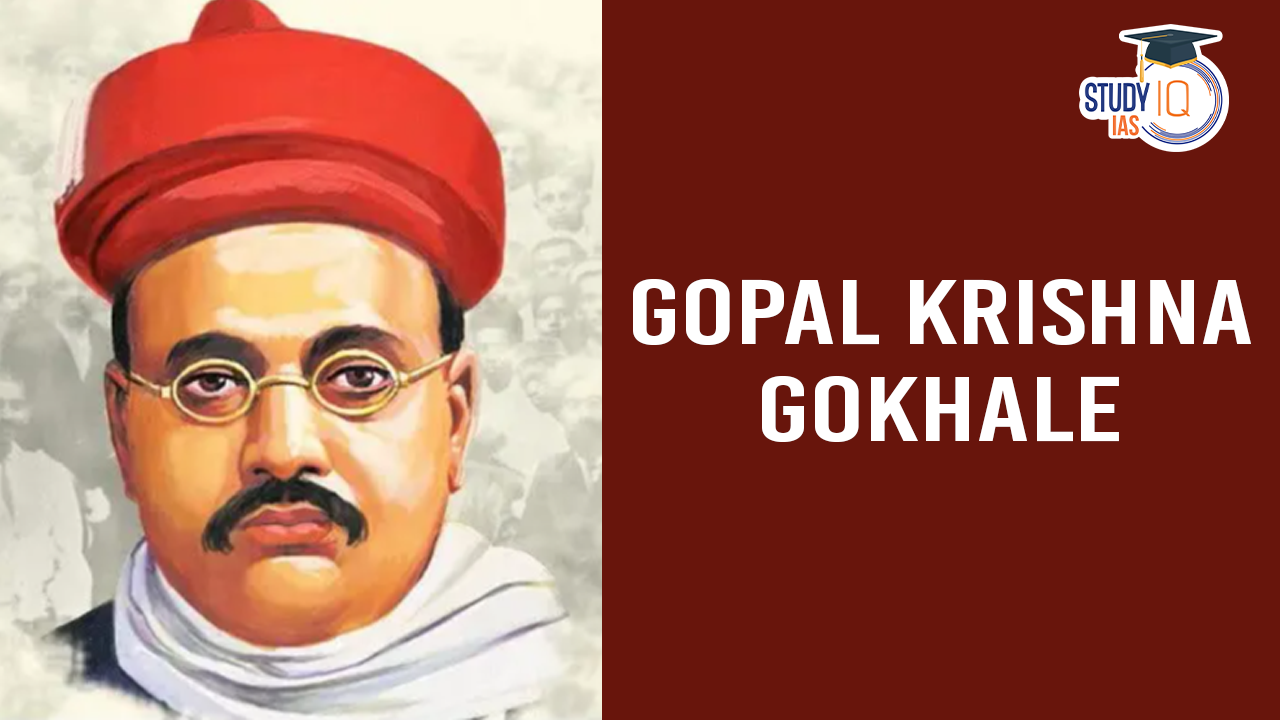Table of Contents
Gopal Krishna Gokhale was a distinguished Indian social reformer, educator, and politician who played a crucial role in India’s struggle for independence. He was one of the most prominent moderate leaders in the Indian National Congress and served as a mentor to Mahatma Gandhi. His efforts in advocating self-rule, social reforms, and constitutional means to attain India’s freedom laid the foundation for future movements.
Gopal Krishna Gokhale’s Early Life and Education
Born on May 9, 1866, in Kothluk, Ratnagiri District, Bombay Presidency (now Maharashtra), Gokhale hailed from a humble Chitpavan Brahmin family. He completed his primary education at Rajaram High School in Kolhapur and later pursued higher education at Elphinstone College, Bombay, where he earned his bachelor’s degree at the young age of 18. His exposure to Western education introduced him to democratic ideals and parliamentary governance, which greatly influenced his political ideology.
Gopal Krishna Gokhale and Deccan Education Society
After graduation, Gokhale joined the Deccan Education Society (DES), an institution dedicated to promoting education among Indians. He later became a professor at Fergusson College, Pune, and worked tirelessly to spread knowledge and instill a sense of patriotism among students. His mentor, Mahadev Govind Ranade, played a crucial role in shaping his views on social reform and political moderation.

Gopal Krishna Gokhale’s Political Career and Achievements
In 1889, Gokhale entered politics by joining the Indian National Congress (INC). He quickly rose through the ranks, advocating for constitutional methods and dialogue with the British authorities to secure reforms. Some key milestones in his political career include:
- 1895: Appointed as the Secretary of the Reception Committee at the Poona session of the INC.
- 1902: Elected to the Imperial Legislative Council, where he actively debated policies and budgetary allocations.
- 1905: Became President of the Indian National Congress, marking the peak of his political career.
- 1905: Founded the Servants of India Society, an organization dedicated to training young Indians for public service and national development.
Gopal Krishna Gokhale’s Role in Social Reforms
Gokhale was a strong advocate of social justice and worked towards the upliftment of marginalized communities. His contributions include:
- Opposition to Untouchability and Caste Discrimination: He emphasized the need for equality and education for all sections of society.
- Promotion of Women’s Education and Rights: He actively supported female education and legal reforms to improve the status of women.
- Economic Reforms: He argued for increased Indian participation in governance and economic decision-making.
Gopal Krishna Gokhale’s Influence on Mahatma Gandhi
Gokhale’s moderate and reformist approach deeply influenced Mahatma Gandhi, who considered him a political guru. Gandhi’s early political strategies were shaped by Gokhale’s principles of non-violence, dialogue, and constitutional reforms.
Gopal Krishna Gokhale’s Key Literary Contributions
Gokhale’s thoughts and speeches were compiled in various books, including:
- The Speeches and Writings of Gokhale (Edited by R.P. Patwardhan, D.G. Karve, and D.V. Ambedkar)
- Gokhale: A Political Biography by B. Mathur
- Gopal Krishna Gokhale: A Centenary Tribute by the Maharashtra Information Centre
- Tilak and Gokhale: A Revolution and Reform in the Making of Modern India by Stanley A. Wolpert
Gopal Krishna Gokhale: Death and Legacy
Gopal Krishna Gokhale passed away on February 19, 1915, in Bombay. Despite his untimely demise, his contributions to India’s freedom struggle and social reforms continue to inspire generations. His vision of a progressive India laid the groundwork for future leaders to continue the struggle for independence.
Conclusion
Gopal Krishna Gokhale was a remarkable leader whose dedication to education, social reforms, and constitutional struggle significantly impacted India’s history. As a pioneer of moderate politics, he demonstrated that change could be achieved through reason, negotiation, and persistent efforts. His legacy lives on through institutions like the Servants of India Society, which continues to work for the betterment of Indian society.


 Sir Shankaran Nair and Story of the Jall...
Sir Shankaran Nair and Story of the Jall...
 Jyotiba Phule Biography, Facts and Socia...
Jyotiba Phule Biography, Facts and Socia...
 Veer Baburao Pullesur Shedmake: The Forg...
Veer Baburao Pullesur Shedmake: The Forg...





















